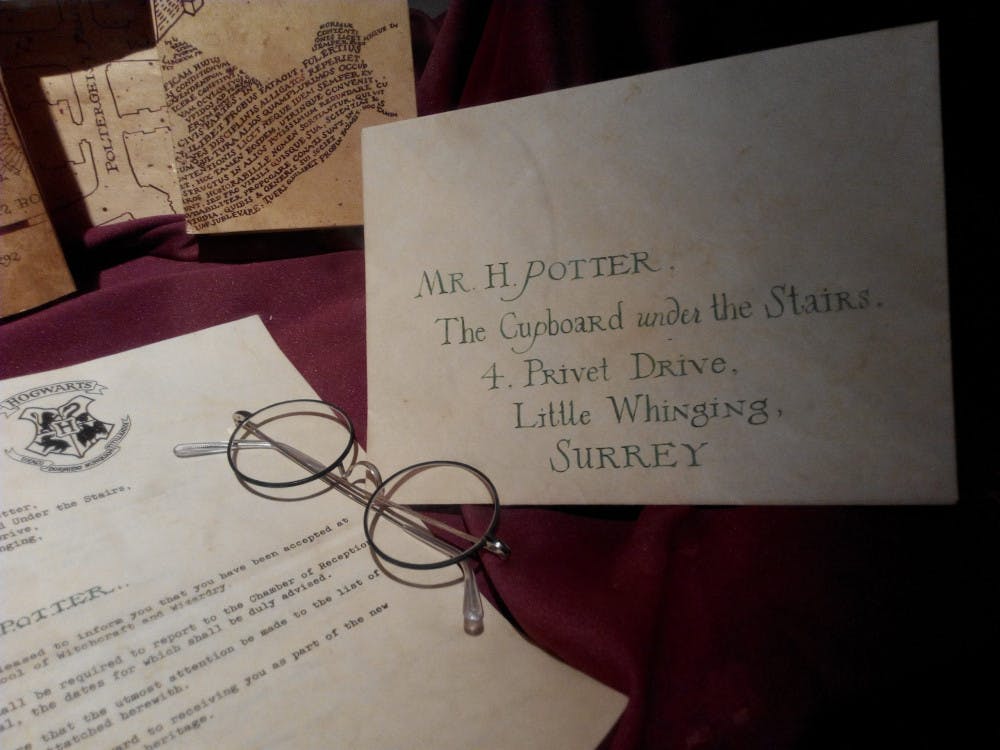Popular young adult series are riddled with harmful stereotypes

By Natalie Vinh
Authors have built empires through young adult fiction.
Popular series like J.K. Rowling’s “Harry Potter,” Rick Riordan’s “Percy Jackson” and Stephanie Meyer’s “Twilight” are household names in the United States. As of 2018, 500 million copies of “Harry Potter” have been sold across the world, and in the very first week of sales, Meyer’s newest addition to the “Twilight” franchise sold over 100 million copies.
Chances are, most of the people you’ve met have read them.
With book sales in the millions, box-office hits and even whole theme parks dedicated to the franchises, how could such universally cherished series be problematic?
For one, all three series are written by white authors. Which isn’t an inherent problem, instead, it’s the harmful portrayal of characters of color in these stories that begs the question, why aren’t more people talking about this?
According to a study by the Cooperative Children’s Book Center, only 11.9% of children’s and young adult books published by U.S. publishers in 2019 were about Black characters. When J.K. Rowling’s first “Harry Potter” book was released in 1997, a mere 4.3% centered around Black characters.
More than a decade after the first “Harry Potter” book was released, we haven’t really come all that far.
So what happens when there’s a lack of diversity in consumable media?
We come across the concept of a single narrative, introduced by Chimamanda Adichie in her TED Talk on telling a story from a singular viewpoint. Adichie discusses the automatic discrimination and bias she faced in college from peers who weren’t used to BIPOC.
“She [her roommate] had felt sorry for me even before she saw me,” said Adichie. “Her default position toward me, as an African, was a kind of patronizing, well-meaning pity.”
Without an accurate portrayal of POC in the media, all cultures are affected. Bias and discrimination cultivate in majority cultures, while minority cultures may begin to feel disdain for their heritage or general frustration at the lack of representation.
As proven by the Cooperative Children’s Book Center, the lack of BIPOC characters in young adult fiction is abysmal. There must be a change.
Simply writing in POC characters isn’t enough when it comes to proper representation, as we see in series like “Harry Potter.”
Out of countless characters introduced throughout the seven-part series, there’s only a handful of explicitly stated POC, most of whom tend to be harmfully stereotyped.
Dean Thomas and Blaise Zabini, two explicitly stated Black characters, both lack fathers. Angelina Johnson, another Black character, has her braids compared to worms by a white character.
Cho Chang, Parvarti Patil and Padma Patil, the three Asian characters, have been criticized for the lack of creativity surrounding their names, especially compared to others such as Dedalus Diggle and Draco Malfoy.
Meyer’s “Twilight” series faced backlash for her portrayal of the local Quileute tribe, and Riordan’s “Percy Jackson” pushes a narrative of white gods and goddesses, reserving POC characters for roles as monsters.
The existence of racist stereotypes in any form of media is a problem, but why should it be considered more seriously in popular media?
As Adichie states in her TED Talk, many of her college peers hadn’t grown up exposed to POC. Changing the media we create is the perfect place to begin.
There needs to be an increase in authors of color and further research done by non-POC authors on how to write accurate portrayals of different cultures, especially when writing fiction for children and young adults.
Creating a legendary series, but filling it with racist allegories and stereotypes further pushes a harmful narrative.
We may be progressing towards a more diverse selection of consumable media, but we still have a long way to go.
The Society of Children’s Book Writers and Illustrators offers a host of free diversity resources on their website, including publishing options and scholarly articles.
There are no excuses anymore. Society will only benefit from a more diverse selection of young adult fiction. It’s time to write history.
What do you think? The Front accepts letters to the editor (max. 250 words) and guest columns (max. 400 words) on subjects of interest to our community. Please submit your ideas, along with a phone number and email address, to westernfront.opeditor@gmail.com





